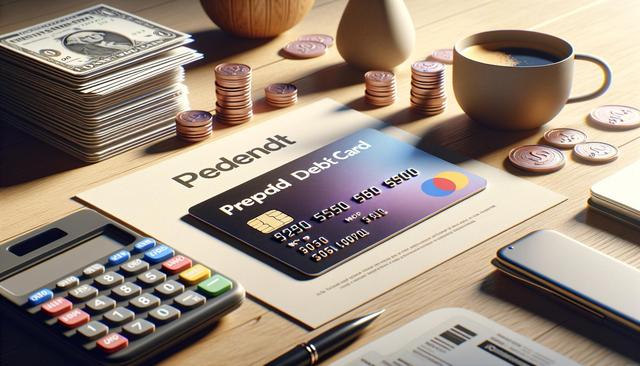What Are Prepaid Debit and Credit Cards?
Prepaid debit and credit cards are financial tools that allow users to make purchases without the need for a linked checking account or a line of credit. Unlike traditional cards, prepaid options require funds to be loaded onto the card before use, making them a valuable resource for budgeting and controlling spending. These cards are accepted almost everywhere regular cards are used, including online retailers, grocery stores, and travel bookings. Users can load money through direct deposit, bank transfers, or cash reload networks, and the card can be used until the balance reaches zero.
One of the key advantages of prepaid cards is their accessibility. They don’t usually require a credit check, making them ideal for individuals with limited or no credit history. Prepaid cards also serve as an alternative for those who prefer not to use traditional banking systems or are looking for an easy way to separate spending categories such as travel, groceries, or entertainment.
Benefits of Using Prepaid Cards
Prepaid cards come with several practical benefits that make them suitable for various users. One of the most appreciated features is the ability to control spending. Because you can only spend the amount loaded onto the card, overdraft fees are typically not a concern. This feature makes prepaid cards particularly effective for:
- Teens or students learning to manage money
- Travelers who want to avoid carrying cash
- Individuals who want to separate funds for specific expenses
In addition, many prepaid cards offer security features such as PIN protection, fraud monitoring, and the ability to freeze the card if it’s lost or stolen. Some also allow users to manage their accounts through mobile apps, making it easy to track spending and reload funds on the go.
How Prepaid Credit Cards Differ From Traditional Credit Options
Unlike traditional credit cards, prepaid credit cards do not offer a line of credit. They function more like debit cards but are often branded by major payment networks, making them widely accepted. There’s no borrowing involved, so users don’t accrue interest or need to worry about minimum payments. This makes prepaid cards a useful tool for those aiming to avoid debt or those who are ineligible for traditional credit products.
However, because prepaid cards do not report to credit bureaus, they usually do not help build or improve credit scores. This can be a disadvantage for users who are trying to establish credit. For those interested in improving their credit rating, secured credit cards may be a better alternative, as they require a refundable deposit and report activity to credit agencies.
Ideal Use Cases for Prepaid Cards
Prepaid debit and credit cards are suited for a range of scenarios, offering flexibility and ease of use. Here are some common situations where these cards are especially beneficial:
- Budgeting: Allocate a specific amount to a prepaid card to manage monthly expenses like groceries or entertainment.
- Gifting: Prepaid cards make convenient gifts, allowing recipients the freedom to choose what they want.
- Travel: Reduce the risk of carrying cash while maintaining spending limits.
- Online Purchases: Use a prepaid card for safer online shopping, especially on unfamiliar websites.
These cards are also helpful for parents who want to give allowances to their children or track their spending. Employers sometimes use prepaid cards to issue wages or bonuses, especially for temporary or contract workers without bank accounts.
Things to Consider Before Getting a Prepaid Card
While prepaid cards offer multiple conveniences, it’s important to evaluate the terms and conditions before choosing one. Some cards come with fees that can include activation charges, monthly maintenance fees, ATM withdrawal fees, and reloading costs. Always compare the fee structures to find a card that aligns with your usage habits.
Additionally, check if the card provides features that are important to you, such as:
- Mobile app access for easy account management
- Direct deposit capabilities
- Fraud protection and customer support
- No inactivity fees or expiration dates
Understanding these aspects ensures a smoother experience and helps you get the most value from your prepaid debit or credit card. Taking the time to read through the card’s documentation can save you from unexpected charges and limitations.
Conclusion: Making the Most of Prepaid Card Convenience
Prepaid debit and credit cards provide a flexible and user-friendly way to manage finances, especially for those who may not have access to traditional banking or credit resources. Whether you’re budgeting, gifting, or simply looking for a safe way to shop online or travel, these cards offer practical advantages without the risks of overspending. By understanding the features, benefits, and potential fees, users can make informed decisions and integrate prepaid cards effectively into their financial routines.












